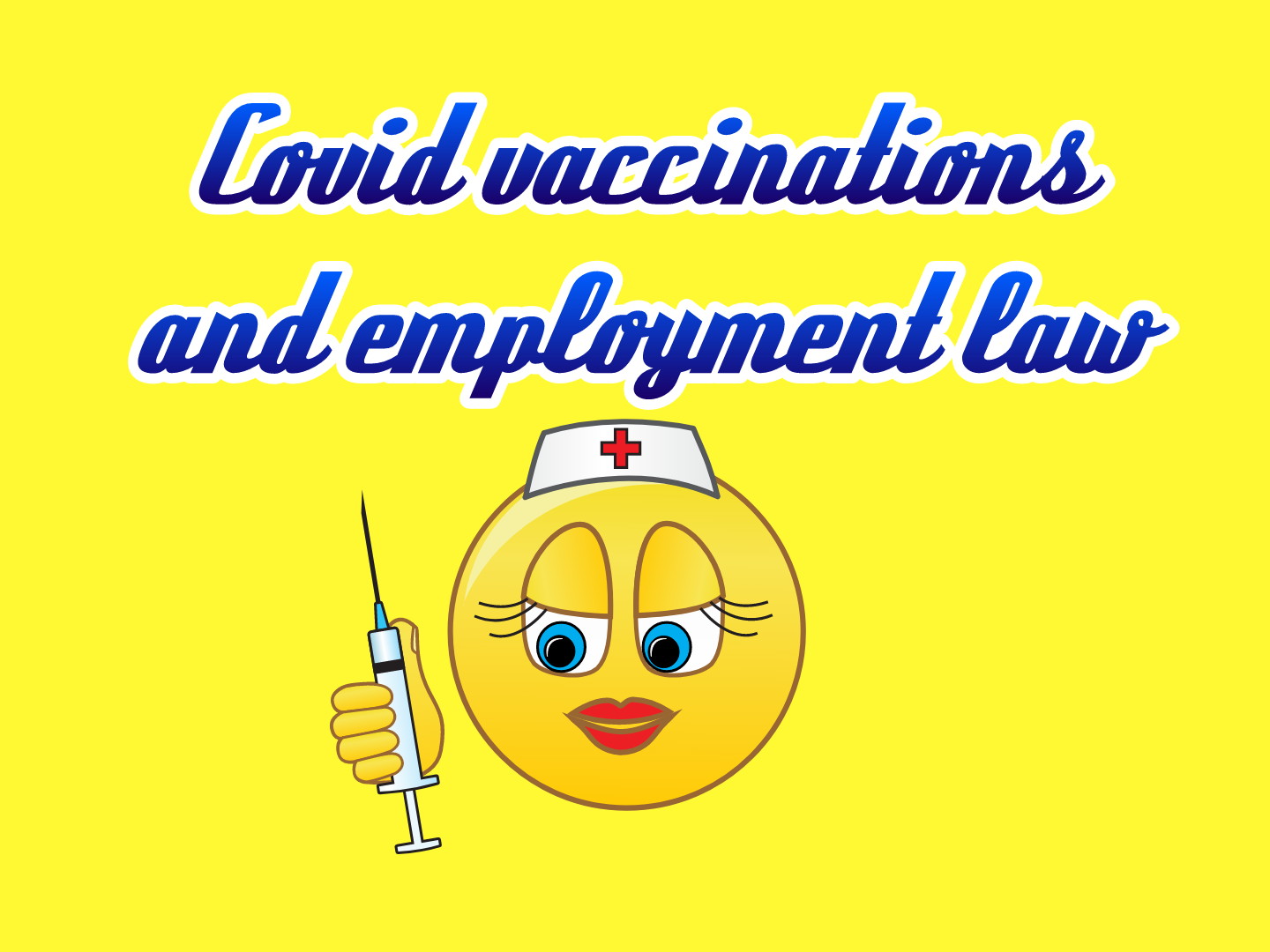- Free Consultation: (631) 352-0050 Tap Here to Call Us
Do Covid Vaccinations Implicate Employment Law Concerns?

On December 14, 2020, the country’s wait for a COVID-19 vaccination came to an end as the first vaccines began to be administered to America’s health care workers. Like many measures taken to combat the virus, the vaccine is not without controversy. According to one recent survey, nearly one quarter of Americans are hesitant about taking the vaccine. With such a prevalence, employers and employees may be wondering about whether employers can require workers be vaccinated and whether workers can refuse a vaccine mandate. Today’s Long Island employment law blog discusses these issues.
On December 15, 2020, the federal Equal Employment Opportunity Commission issued guidance to employers about how the COVID-19 vaccine may implicate employment law concerns. The issues discussed in this blog rely on that guidance.
The first employment law which may relate to vaccinating workers is the Americans with Disabilities Act (ADA). The ADA generally prohibits employers from discriminating against employees based on an employee’s medical condition or disability. More specifically, the ADA regulates medical examinations of employees. For vaccines, the preliminary question is whether a vaccination is a medical exam.
The EEOC suggests that vaccinations are not medical examinations. Accordingly, vaccines are not regulated by the ADA if they are administered for the purpose of protecting against contracting the coronavirus. But, pre-screening questions may constitute a medical exam because they may elicit information about an employee’s disability. Therefore, if an employer administers vaccines and engages in pre-screening questioning of employees, the questions must be job related and consistent with business necessity, to be legal under the ADA.
To qualify as job related and consistent with business necessity, the employer must be able to show that it has a reasonable belief that an employee who does not answer pre-screening questions, and thereby cannot be vaccinated, will pose a “direct threat” to the safety of him or herself or others. This belief must be formed by conducting an individualized inquiry of the employee. In other words, the employer cannot adopt a blanket policy that any employee who is not vaccinated is a direct threat. The employer must determine whether an unvaccinated employee will expose others to the virus in the workplace.
If the employer determines that an unvaccinated employee is a direct threat, the employer cannot immediately terminate or exclude the unvaccinated employee. The employer must first determine whether the employee can be accommodated in some way, such as by working remotely. Employers must engage in an interactive process with the employee to determine whether an accommodation can be made. Employers may review documentation about the employee’s disability to assist in finding an accommodation. But, the prevalence of other workers’ obtaining the vaccine may play into whether an accommodation poses an undue hardship on the employer.
The EEOC has identified two circumstances under which pre-screening questions can be asked without the questions relating to a job and business necessity. First, if the vaccination is voluntary. Then, the employee can refuse to answer the pre-screening questions if he or she wants, but the employer cannot retaliate against the employee.
Second, if the vaccination is provided by a third-party which is not under contract with the employer, the provider may ask pre-screening questions. An example would be if the employee gets vaccinated at a pharmacy or other health care provider.
After an employee is vaccinated, may an employer lawfully ask an employee for proof of vaccination? According the EEOC, the answer is yes. An employer may ask an employee for proof vaccination without the question being considered a medical exam. But, if the employee did not receive a vaccination, the employer may not follow up with questions inquiring about why the employee did not get vaccinated because the answers may reveal the employee’s disability.
In addition to disability discrimination concerns, workplace required vaccinations may implicate religious discrimination concerns. Title VII prohibits discrimination based on an employee’s religion. If an employee’s sincerely held religious belief prohibits the employee from being vaccinated, an employer may violate Title VII if it requires the employee to be vaccinated or terminates the employee for refusing the vaccination.
The exception to this rule is when accommodating the employee’s religious beliefs would cause an undue hardship on the employer. The hardship must be more than de minimis, meaning more than minimal. If no reasonable accommodation can be made for the employee, then the employer may lawfully terminate the employee.
The interplay between vaccinations at work and employment laws can be tricky. Employers can find themselves in trouble by implementing broad policies about vaccination requirements without making individualized assessments of each employee’s need for an accommodation. Employees can find trouble by refusing vaccines without having a legitimate disability or sincerely held religious belief.
Because of the intricacies of these employment issues, employers and employees should consult experienced employment lawyers about vaccination issues in the workplace. Famighetti & Weinick PLLC are available at 631-352-0050 to answer your questions.
Can employers require employees be vaccinated against covid-19?









